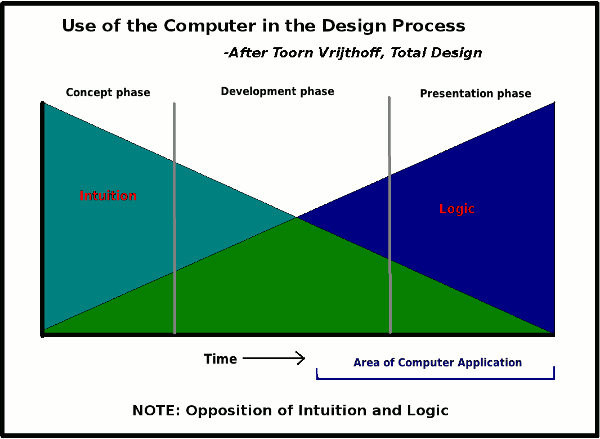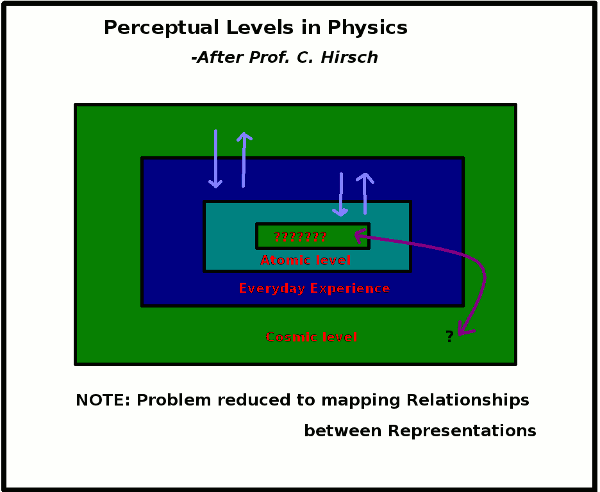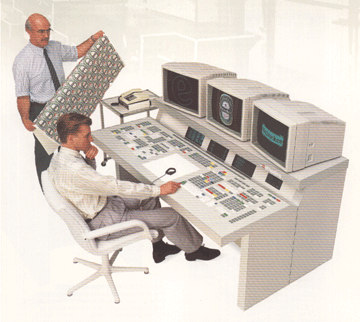The BBC Microcomputer and me, 30 years down the line

The tech industry is celebrating the 30th anniversary of the BBC Microcomputer.
The system was built by Acorn Computers as part of the BBC's Computer Literacy Project.
It ran a new programming language, BBC Basic (beginners all-purpose symbolic instruction code), and helped bring computing into people's homes and schools.
However, trying to establish an "official" launch date is trickier than it sounds.
Although the computers were demonstrated at trade exhibitions and reviewed in the press in 1981, a production snag pushed back deliveries.
A circuit, which controlled the "high definition" screen display, was found to have a higher than acceptable failure rate.
A redesign was ordered and as a result only a few hundred computers out of a planned batch of 3,000 were ready in time for the start of The Computer Programme when the first episode was broadcast in January 1982.
This initial hiccup proved far from fatal. After Acorn overhauled its production system, the Model A and the more expensive Model B went on to sell more than 1.5 million units, wildly exceeding expectations.
The BBC asked seven
people whose lives were changed by the computers for
their memories.
Mike Lynch, Co-founder of Autonomy

The BBC Micro was pretty fundamental to how my life turned out, in that it was the first computer I ever owned.
I still remember exactly how much it cost - a whopping £400, which I raised through a vast amount of odd jobs, saving money, begging, and borrowing, all in order to get my hands on one.
When I did, it was truly inspirational and a revelation for me.
I feel very lucky to have been part of the early days of home computing with the BBC Micro, because you could actually get at everything and do everything; not only could you access all of the devices directly through the software, but you could even take the lid off - they gave you a circuit diagram and you could mess with it.
The first thing that I tried to do was become as famous as Duran Duran by turning this 8-bit microprocessor into a sampler, so that I could become a pop star and have hordes of women screaming after me.
This involved religiously programming the computer, as well as also taking the unprecedented steps of cutting tracks on the PCB for bits that were upsetting its ability to make music.
I learnt more about practical computing and solving programming problems from dealing with the BBC Micro than I could ever have learnt on any university computer science course.
I still have my original BBC Micro in pride of place; I look back at it and it brings back the fondest memories of a time when all seemed possible.
Mike Lynch is the
co-founder and chief executive of Autonomy, the
business-analytics software firm which was bought by
Hewlett Packard earlier this year.
Conrad Wolfram, Co-founder of Wolfram Research

I kept to the deal with my mum over her buying a BBC Micro: she'd write, I'd play around and help her set up.
What I hadn't signed up to was ongoing parental tech support or her game-playing addiction that the likes of Defender and Pac-Man produced.
My programming time got rather curtailed - but fortunately most people's didn't.
The Beeb introduced a generation of British children to the power of programming and indeed I want to see this return in a modern form, part of my computerbasedmath.org agenda.
To be honest I was never an aficionado like some of my friends, being more interested in getting real results (which the Beeb wasn't always great for) than the intricate quirks that led to that end.
But I was fond of the Beeb, liked its funky orange function keys - cool compared to the staid Apple II at school - and even quite enjoyed that I had to glue a matchstick to prop up the failing space bar, a standard fix I found out about at school.
That was the kind of problem solving and frustration a Beeb taught.
And boy, have we come a long way. That's really what today's anniversary reminds me.
Conrad Wolfram is
European co-founder of Wolfram Research, makers of
Mathematica software and the knowledge engine
Wolfram Alpha.
David Darling, Co-founder of Codemasters

I started coding games at home when I was 11 years old with my brother Richard. We graduated to selling them by mail order, then to setting up a games company.
The 8-bit era of home computing in the 1980s was one of the most important and exciting times in the development of technology.
There was an explosion of creativity, most of it coming from self-taught young men like us working at home.
Everything was possible, the potential was infinite. At Codemasters we rode the crest of a wave creating games very quickly then selling millions of them, mostly in the UK and the rest of Europe.
It laid the groundwork for a whole myriad of industries that grew out of what the talent went on to do.
The BBC computer was central to the whole revolution because it added two veneers of respectability, firstly because it carried the good name of the BBC and secondly because it was used in schools.
We had a BBC at our school and we played some amazing games on it: Scramble, Defender and Pac-Man-type games of a very high quality.
The era came to an end when the technology split into two, the IBM PC and the Nintendo game console.
But ironically we have a resurgence of exactly the same kind of massively creative ecosystem again today with the emergence of powerful mobile devices and the app markets that serve them.
David Darling CBE is
the co-founder of Codemasters and now runs Kwalee, a
smartphone game developer.
David Allen, Television producer

It started with a man from the Wirral suggesting the BBC did an electronics series for soldering-iron enthusiasts.
It ended with one of the most ambitious projects the BBC has ever mounted - its own name on 1.5 million home computers, a best-selling book, hundreds of thousands of people learning systematically how to make micros do things and over 100 television and radio programmes, all of which came under the umbrella of The BBC Computer Literacy Project (1982-86).
I was lucky enough to be the project editor and also series editor for the television series.
These followed huge amounts of audience research and soul-searching by the BBC about what it could or should do to prepare people for the Micro Revolution, as it was called.
The BBC Micro itself arose because manufacturers we approached couldn't agree on a common programming language so we decided that we needed one of our own which we thought was better than all of theirs.
I think we succeeded.
We certainly produced a versatile machine as able to do things like control the BBC's very own robot as well as create a handy spreadsheet. We helped to enthuse a whole generation of people who now are in senior positions in the IT industry.
The UK lives or dies by innovation.
I hope that the BBC can spearhead a new kind of of national initiative based round the immense possibilities thrown up by the "future internet", where people and things communicate to improve our lives.
David Allen produced
the BBC 2 television series Micro Live as part of
the BBC's Computer Literacy Project.
David Braben, Chairman of Frontier Developments

The BBC Micro and the Acorn Atom - which in many ways was very similar - inspired a generation.
It was so easy to learn on, to the extent just about everyone could write the program like this without even realising they were learning:
10 PRINT "Fred smells of wee"
20 GOTO 10
It brought a confidence and familiarity with simple programming that stayed with those lucky enough to experience it for the rest of their lives.
It also came with everything you needed to program - even including one of the best assemblers around then and now - built in to the machine without any complex installation required.
There were many other machines around, all capable of being programmed, like the Commodore Pet, Sinclair ZX80 and ZX81, Apple 2, and then in the following years Spectrum, Amstrad CPC, Commodore 64, even curios like the Oric Atmos, Tatung Einstein, and MSX.
But it was the BBC Micro that had the impact - mainly because of its spread throughout UK schools.
The impact it has had 30 years on is amazing.
Just look around places like Cambridge's Science Park to see the results. Many of these companies were founded by people whose thorough introduction to technology came through the BBC Micro.
I hope machines like the Raspberry Pi can go on to do something similar for today's kids!
David Braben is
chairman and founder of Frontier Developments, and a
co-founding trustee of the charity The Raspberry Pi
Foundation which plans to sell an ultra-low-cost
computer.
Dan Crow, Chief technology officer of Songkick

My first computer was a ZX81, but it was my BBC Model B that really got me into computers.
Here was a real computer, satisfyingly chunky and with a proper keyboard. The BBC Micro was where I learned my trade.
To do anything you had to use the Basic programming language, so you learned the essentials of programming just to play a game or use a word processor.
It was a very open system with excellent documentation and the accompanying TV series was very encouraging.
A great community grew up, with magazines such as Beebug, and user groups across the UK.
In those early days programs were listings you typed in, or supplied on cassette tapes.
The community encouraged experimentation and sharing: almost everyone was figuring out computers for the first time, so there was a strong sense of learning together.
Tips and techniques were shared as people discovered all the things you could do.
Though limited compared to modern machines, the BBC Micro was a real computer capable of amazing things.
It captured the imagination of a generation of programmers.
It is still the computer I had the most fun with. I owe my career to Acorn and the BBC Micro.
Dan Crow is chief
technology officer at the tour date tracking service
Songkick. He previously worked at Apple and Google.
Jason Fitzpatrick, Chairman of the Centre for Computing History

The BBC Micro was hugely influential in my life.
My mum could see that I was hugely interested in computers and although a single parent at the time, she scraped together the money to buy one for me.
I was so grateful. It wasn't long before I had it wired up to disco lights and then promptly blew its chips off! She then had to pay the repair bill too - thanks, Mum!
Because of its expandability and capability, it was probably responsible for more small start-up companies than any other computer of its time.
A huge number of companies started designing, manufacturing and selling third-party add-ons from bedrooms and garages across the country.
I was one of them. I created a simple little memory expansion and sold a few via the classified ads.
And let's not forget some ground-breaking games like Elite were written for the BBC Micro.
Elite was the first immersive wire-frame 3D computer game and would later be the inspiration for many other games in this new genre.
I wasted many, many hours on that one! Yet I still have the cheek to tell my son not to spend so much time on the Xbox playing games!
Most importantly, the BBC Micro was my favourite computer.
I had the ZX81, I had the VIC-20, but my BBC Micro was the machine that set my trajectory in a career in computing, electronics and programming. Happy Birthday Beeb!
Jason Fitzpatrick is the Chairman and Chief Geek at the Centre for Computing History near Cambridge. He also runs a technical props company for the film and TV industry.
Next week The National Museum of Computing at Bletchley Park opens a new gallery looking at the Computer Literacy Project and the Origins of the BBC Micro.



